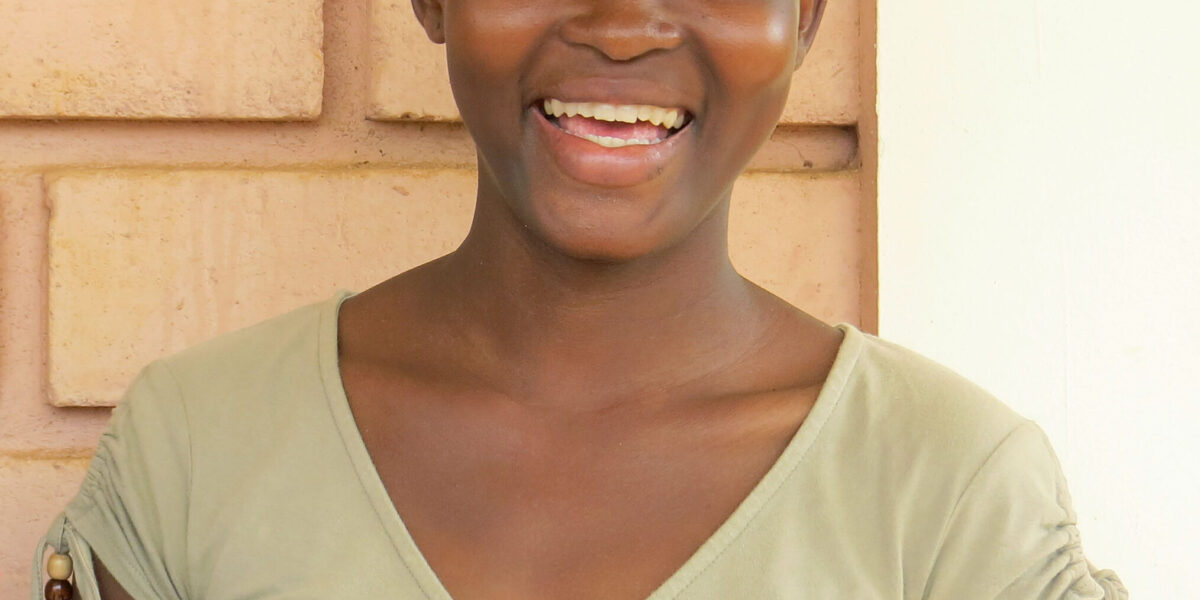ALLADA, Benin (Mennonite Mission Network) – The people of Allada say that when you step through the gate into La Casa Grande’s complex, it is like entering paradise. Outside the walls, red dust from the bustling road settles on bushes, shops and pedestrians. Inside, however, the paved walks are swept clean and an abundance of green suggests a place of growth and peace.
That’s what 8-year-old Mawuli* and her half-brother, Codjo,* found when they were delivered to La Casa Grande by their mother’s boyfriend. Mawuli’s father had died and then, a few years later, her mother.
The boyfriend was not able to care for the children himself and did not know where to find relatives. All he had were faint memories of a visit to the maternal grandparents’ village years before. He remembered that the grandparents wanted nothing to do with their daughter and her children because of a long-running family feud.

Check out the stop-motion video of Mawuli’s story. Use this video and discussion questions in your chilren’s Sunday school class!
“My life at La Casa Grande is an unforgettable story,” Mawuli said. “I receive everything here – my education, my personal relationships, everything a child needs.”
From the initial vision of caring for children in difficult circumstances, La Casa Grande’s ministry has had to grow along with its children. After 14 years of ministry, La Casa Grande must now discern how best to accompany high school graduates.
Mawuli, a passionate student, was ready for her final year of high school, but needed her birth certificate to begin the year that prepares her for the highly competitive bac exam in June. La Casa Grande authorities could not find family members through court records and radio announcements using Mawuli’s family name that the boyfriend had given.
After all her hard work in school, it looked like Mawuli wouldn’t be able to pursue her dreams of becoming a journalist or a lawyer. Three members of La Casa Grande’s staff – Bienvenu Kadja, assistant coordinator; Placide Hounsokpo, sociologist; and Eliane Dangboué, secretary – were not willing to see Mawuli’s life goals slip away. They decided to do a bit of sleuthing.
After praying that God would open the way for them, the threesome started out for the mother’s birth village, the only clue they had. They found the home of the maternal grandparents, but after nearly two decades, Mawuli’s grandmother was still angry and refused to answer their questions.
However, in a rant, the grandmother let slip the family name of Mawuli’s father. The last letter of the paternal family name was different from the name the boyfriend had indicated to La Casa Grande. The irate grandmother also inadvertently named the paternal village.
Keeping solemn faces that belied their inner triumph, the La Casa Grande detectives bid the grandmother goodbye and headed for the paternal village several hours distant. With the correct name, they quickly found the father’s family homestead.
When they arrived, they said that had come to inquire about a child. The father’s younger brother said, “Do you have news of Mawuli? We have been looking for her for 10 years.”
With the information given by the paternal family, Hounsokpo drew up Mawuli’s family tree. Her La Casa Grande family noticed an immediate transformation in her demeanor.
“Now, Mawuli carries herself with pride,” Hounsokpo said. “She can say what ethnic group she belongs to. She has uncles and aunts and grandparents.”
La Casa Grande authorities summoned both the maternal and paternal relatives to a court appearance on Dec. 12, 2013, without telling them that the other side of the family had been contacted. Then, they placed the outcome, the creation of Mawuli’s birth certificate – and her future – into the hands of God.
Near the end of the relatives’ journey to Allada, they reached Lac Ahémé that they needed to cross in a pirogue (a dug-out canoe). The ferryman had just pulled away from the bank with Mawuli’s maternal relatives, when another group of people appeared at the lake’s edge. He turned his pirogue around and went back for them.
After the lengthy traditional greetings, the two groups asked each other what was bringing them to Allada. This “chance” encounter between the two families seemed miraculous to them and they embraced each other in the pirogue.
“This is what we had hoped for,” Kadja said.
The miracles didn’t stop with reconciliation between the two families. Normally, it takes three months for a birth certificate to travel through the administrative pipelines, three months that would have significantly hampered Mawuli’s studies. Mawuli’s court date was on a Friday. Kadja picked up her birth certificate the following Monday.
“God is powerful,” Mawuli said. “I know God has a plan for my life because I received an unexpected miracle.”
Mawuli didn’t have a lot of time for a journalistic interview. She was in a hurry to get back to classes to make the most of the few months that are left before she takes her graduation exam.
*Name changed to protect identity
###
For immediate release
Mennonite Mission Network, the mission agency of Mennonite Church USA, leads, mobilizes and equips the church to participate in holistic witness to Jesus Christ in a broken world. Media may contact news@mennonitemission.net.







